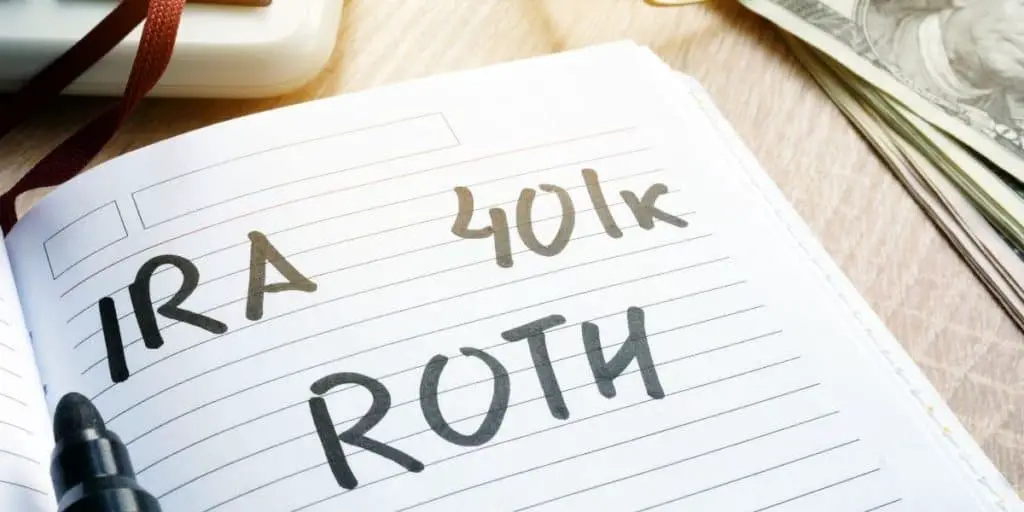I recently decided to open a new bank account. In doing this, I was overwhelmed with my options. As I skimmed through different account options, I realized that I knew little about their unique features. Hence, to determine the account type that best meets my requirements, I decided to start with the basics and spent a week in researching this subject.
In this post, I will share my findings to help you understand the key differences, advantages, disadvantages and use cases of different account types.
In the United States, there are six major account types commonly offered by banks:
- Checking Accounts
- Savings Accounts
- Money Market Accounts
- Certificate of Deposits
- Brokerage Accounts
- Individual Retirement Accounts (IRAs)
Now, without further ado, let us dive straight into my findings on various bank account offerings in the United States.
IMPORTANT SIDENOTE: I surveyed 1500+ traders to understand how social trading impacted their trading outcomes. The results shocked my belief system! Read my latest article: ‘Exploring Social Trading: Community, Profit, and Collaboration’ for my in-depth findings through the data collected from this survey!
Table of Contents
1. Checking Account
This is the most basic account type offered by banks. It comes with a checkbook, and an ATM/Debit Card. You will need a checking account for everyday banking needs such as – depositing checks, paying bills, and making withdrawals. Additionally, most banks now offer online bill payment services with these accounts.
A Checking Account will also earn interest on the deposits you make. However, the interest rate offered by this account is the lowest of all account types. Therefore, if earning interest is your primary objective, most other account types will appeal better to your needs.

Advantages of a Checking Account
- Checking Accounts have no restrictions on the number of monthly transactions.
- Account maintenance requirements for these accounts are minimal.
- Most banks charge ZERO maintenance fee for Checking Accounts. Plus, the maintenance fee for premium checking accounts can also be waived by maintaining either a minimum direct deposit or an account balance threshold.
- Deposits up to $250,000 in Checking Account are FDIC insured.
Disadvantages of a Checking Account
- Checking Accounts pay the lowest interest rate among all account types.
When should you choose a Checking Account?
You will need a Checking Account for everyday banking. Salary deposits, cash withdrawals, bill payments, etc. are examples of a few daily banking needs for which you will need this account.
2. Savings Account
Savings Accounts are not meant for everyday banking. As the name suggests, these accounts are designed to hold your savings. Also, the number of monthly transactions supported by a Savings account is limited. Additionally, most banks discourage frequent outward transactions from this account.
Given the withdrawal limitations with Savings Accounts, you can best leverage these accounts to park your savings. In addition to keeping your money safe, these accounts will also pay a higher interest than Checking Accounts on your deposits. However, please note that this higher interest rate will not be enough to earn you any meaningful return on your deposits.

Advantages of a Savings Account
- Savings Accounts have restrictions on the number of monthly transactions. Due to these restrictions, you are less likely to spend the money deposited in these accounts. Therefore, a savings account can greatly help in improving your spending habits.
- The account maintenance requirements for Savings Accounts are also minimal.
- Like Checking Accounts, most banks offer a Basic Savings Account with ZERO maintenance fee. Additionally, the maintenance fees for Premium Savings Accounts can also be waived by maintaining account balance above a certain threshold.
- Deposits up to $250,000 in Savings Account are FDIC insured.
Disadvantages of a Savings Account
- Immediate fund withdrawal from a Savings Account can be challenging. These accounts don’t come with an ATM or Debit card. Therefore, money deposited in these accounts is not immediately accessible.
- Wire transfers are more restricted with a Savings Account. However, by linking this account with a Checking Account, such restrictions can be easily avoided.
When should you choose a Savings Account?
You should use a Savings Account to deposit funds that you are saving for future needs. For example – college tuition, house down payment, etc.
Also, I would strongly recommend that you keep your emergency funds in a Savings Account. This will stop you from spending this money for everyday needs.
Bonus Tip: If you are looking to open a new Savings Account, do consider an Online Savings Account. The operating expense for Online Banks is sizably low. As a result, Online Banks tend to offer significantly better interest rates than brick-and-mortar banks.
3. Money Market Accounts or MMAs
Money Market Account (MMA) is a hybrid between a Checking and a Savings Accounts. You get an ATM/Debit card with these accounts for easy withdrawal. However, these accounts have restrictions on the number of monthly transactions.
Additionally, the interest rates offered with MMAs tends to be higher than Savings Accounts. However, with MMAs, the interest rate fluctuates with changes to the market rate. Therefore, the interest that you make with these accounts can significantly vary from your expectations.
Furthermore, interest rates with MMAs also vary based on your account balance. Meaning, you are offered a higher interest rate for maintaining a higher account balance. Therefore, the interest return on your deposited capital will depend on your account balance as well.

Advantages of a Money Market Account or MMA
- Money Market Accounts (MMAs) generally pay higher interest on deposits than the Checking and the Savings Accounts.
- These accounts come with an ATM or Debit card. Therefore, you get better access to your funds with an MMA
- Deposits up to $250,000 in Money Market Account are FDIC insured.
Disadvantages of a Money Market Account or MMA
- There are limitations on the number of monthly transactions with MMAs.
- Money Market Accounts provide you an immediate access to your capital. Therefore, these are not as ideal as Savings Accounts for depositing your savings.
- The interest paid in MMAs is tied to the market interest rate. Therefore, it can frequently fluctuate.
- Balance requirements for Money Market Accounts are higher than the Checking and the Savings Account.
When should you choose a Money Market Account (MMA)?
You should use Money Market Accounts for depositing funds on which you need immediate accessibility and earn higher interest.
Since it is easy to withdraw money from MMAs, I don’t recommend it for parking savings. However, if you have the discipline to leave your savings aside, MMAs can be good alternatives to Savings Accounts.
4. Certificate of Deposit
A Certificate of Deposit is an agreement between you and your bank. In this agreement, you promise to keep your capital invested until maturity. In exchange, the bank pays you an agreed-upon interest. Most banks offer very flexible term plans for these deposits. Depending on your investment plan, you can choose a Certificate of Deposit with maturity anywhere between a month to 10-year duration.
With a Certificate of Deposit, your investment is inaccessible until maturity. Moreover, most banks will charge you a hefty penalty fee for withdrawing money before maturity. Due to these limitations, a Certificate of Deposit is sizably more restrictive than a Savings or a Money Market Account.
However, with these deposits you are protected against all interest rate fluctuations. Plus, the interest rate offered with a Certificate of Deposit tends to be higher than other zero-risk alternatives such as Savings Accounts.
Finally, please note that the interest rate for a Certificate of Deposit will depend on the size and the duration of your investments. The longer-term deposits will pay you a higher interest rate. Hence, the ROI on your investment can greatly vary based on the size and duration of your investment.

Advantages of a Certificate of Deposit
- Certificate of Deposits are likely to pay higher interest rates than a Checking, a Savings and a Money Market Account.
- These deposits offer fixed interest rates. Therefore, there is no variability in the interest payments, and your future cash flows are 100% predictable.
- Deposits up to $250,000 in Certificate of Deposits are FDIC insured.
- Certificate of Deposits can be opened for a wide range of maturity terms. Therefore, you have the option to choose the maturity term that best meets your needs.
- There is no account opening or maintenance fees with Certificate of Deposits.
Disadvantages of a Certificate of Deposit
- With a Certificate of Deposit, your capital is inaccessible until maturity. Additionally, you are charged a hefty penalty fee for early termination of the policy.
- The interest rate offered with a Certificate of Deposit can be below inflation. Therefore, you may lose your purchasing power over the longer-term with these deposits.
- You are locked into a fixed interest rate with a Certificate of Deposit. Hence, with these deposits, you lose your ability to take advantage of positive changes in bank interest rates.
- Over the long term, most low-risk investments – such as index funds – will deliver you better returns than the risk-free Certificate of Deposits.
When should you choose a Certificate of Deposit?
You should consider investing in a Certificate of Deposit if you are a risk-averse investor. However, you must ensure that you will not need your invested capital until maturity. The penalty for early withdrawal can far outweigh the interest paid with these deposits.
5. Brokerage Account
Brokerage Account is another type of account that most banks offer. These are taxable accounts and are used to buy and hold investment securities, such as – stock, bonds and ETFs. Dividend proceedings from all your investments are also credited to this account. If you wish to invest in investment securities, you absolutely need to open this account.
Typically, there is no penalty for holding cash in a Brokerage Account. However, it would be unwise holding cash in these accounts, unless you plan on investing it. The cash held in this account cannot be immediately withdrawn. Additionally, you can make interest income by keeping cash in a Savings or a Money Market Account.
That being said, several banks have now started to pay interest on cash held in Brokerage Accounts. However, the interest rates offered with these accounts are not as high as with some other account types.

Advantages of a Brokerage Account
- Brokerage Accounts give you direct access to most investment securities. By investing in these securities, you can generate sizable returns.
- Brokerage Accounts can help you in generating passive income. Dividend investing is one common way for attaining such goals.
- You are not liable to pay capital gain taxes unless you sell your holdings at a profit. With long term investments, you have an opportunity to sizably optimize your tax bill.
Disadvantages of a Brokerage Account
- By investing in securities, you will be exposing yourself to significant market risk. Unlike the Certificate of Deposits, there is no guaranteed return with market investments.
- Your investments through Brokerage Account will not be FDIC insured.
- You will not have immediate access to the funds deposited in your Brokerage Account.
- If you sign up for an Advanced Brokerage Account, you might have to pay an inactivity fee for low transaction volume.
When should you choose a Brokerage Account?
You will need a Brokerage Account to invest in securities such as stocks, ETFs, and bonds. With proper money and risk management, investment in such securities can be very rewarding. If you are willing to put in the time and have an appetite for risk, a Brokerage Account is a must-have for you.
6. Individual Retirement Account (IRA)
As the name suggests, Individual Retirement Accounts (IRAs) are designed to support your retirement fund. These accounts are ideal to grow your retirement savings. This is because you get sizable tax advantages for keeping money in this account.
High level, you don’t owe any taxes on returns generated by your contributions in IRAs, until you withdraw from this account. Furthermore, you can contribute to a few IRAs with your pre-tax income. This can greatly optimize your tax bill. Therefore, these accounts offer incredible value through tax deferment.
In the United States, with these tax benefits, IRAs are your best tool for retirement savings. However, these tax benefits can be substantially reduced if you make an early withdrawal from these accounts. This is because any withdrawal before the age of 59.5 years from an IRA comes with a hefty penalty. Within limited criteria, this penalty can be waived. However, early withdrawal from an IRA is very cumbersome and should only be explored as the last resort.
Under the Individual Retirement Account umbrella, there are several different account types available today. Most common of these are as follows:
- Traditional IRA
- Roth IRA
- SEP IRA
- SIMPLE IRA

Advantages of an Individual Retirement Account (IRA)
- Wealth can be accumulated much faster in an IRA account. This is because you can truly harness the power of compounding with IRAs.
- You can contribute some of your pre-tax income to IRAs. Therefore, your tax bill can be sizably optimized with these accounts.
- Many employers match a portion of employee contributions to IRAs. If your employer happens to offer an IRA match, this is free money that you should not let go of.
- In emergencies, you can get a loan against your IRA account balance.
Disadvantages of an Individual Retirement Account (IRA)
- Withdrawing money early from an IRA can be a nightmare. In certain scenarios, early withdrawals are permitted. However, withdrawing money from these accounts is a complicated and time-consuming process.
- Outside of few exceptions, you are liable to pay a hefty penalty on early withdrawals from IRAs.
When should you choose an Individual Retirement Account (IRA)?
Individual Retirement Accounts (IRAs) are among the best investment options available for retirement savings. From that perspective, you must sign-up for an IRA as early as possible in your career.
Author’s Recommendations: Top Trading and Investment Resources To Consider
Before concluding this article, I wanted to share few trading and investment resources that I have vetted, with the help of 50+ consistently profitable traders, for you. I am confident that you will greatly benefit in your trading journey by considering one or more of these resources.
- Roadmap to Becoming a Consistently Profitable Trader: I surveyed 5000+ traders (and interviewed 50+ profitable traders) to create the best possible step by step trading guide for you. Read my article: ‘7 Proven Steps To Profitable Trading’ to learn about my findings from surveying 5000+ traders, and to learn how these learnings can be leveraged to your advantage.
- Best Broker For Trading Success: I reviewed 15+ brokers and discussed my findings with 50+ consistently profitable traders. Post all that assessment, the best all round broker that our collective minds picked was M1 Finance. If you are looking to open a brokerage account, choose M1 Finance. You just cannot go wrong with it! Click Here To Sign Up for M1 Finance Today!
- Best Trading Courses You Can Take For Free (or at extremely low cost): I reviewed 30+ trading courses to recommend you the best resource, and found Trading Strategies in Emerging Markets Specialization on Coursera to beat every other course on the market. Plus, if you complete this course within 7 days, it will cost you nothing and will be absolutely free! Click Here To Sign Up Today! (If you don’t find this course valuable, you can cancel anytime within the 7 days trial period and pay nothing.)
- Best Passive Investment Platform For Exponential (Potentially) Returns: By enabling passive investments into a Bitcoin ETF, Acorns gives you the best opportunity to make exponential returns on your passive investments. Plus, Acorns is currently offering a $15 bonus for simply singing up to their platform – so that is one opportunity you don’t want to miss! (assuming you are interested in this platform). Click Here To Get $15 Bonus By Signing Up For Acorns Today! (It will take you less than 5 mins to sign up, and it is totally worth it.)
Conclusion: Which type of Bank Account is the best for you?
In conclusion, I will reiterate that depending on your objectives, the optimum account choice can vary. The primary purpose/use-case of major account types is as follows:
- Checking Accounts: Best suited for everyday banking needs such as salary deposits, cash withdrawals, bill payment, etc.
- Savings Accounts: Best suited to set aside some money for future needs such as emergency funds.
- Money Market Accounts: Best suited if your objective is to earn a higher interest rate than a Checking Account but you need greater flexibility with withdrawals than what a Savings Account can offer.
- Certificate of Deposits: Best suited for risk-averse investors to earn interest on deposited capital.
- Brokerage Accounts: Best suited to directly buy and hold investment securities such as stocks, bonds, ETFs, etc.
- Individual Retirement Accounts (IRAs): Best suited for building and growing your retirement fund.
BEFORE YOU GO: Don’t forget to check out my latest article – ‘Exploring Social Trading: Community, Profit, and Collaboration’. I surveyed 1500+ traders to identify the impact social trading can have on your trading performance, and shared all my findings in this article. No matter where you are in your trading journey today, I am confident that you will find this article helpful!
Affiliate Disclosure: We participate in several affiliate programs and may be compensated if you make a purchase using our referral link, at no additional cost to you. You can, however, trust the integrity of our recommendation. Affiliate programs exist even for products that we are not recommending. We only choose to recommend you the products that we actually believe in.
Recent Posts
Exploring Social Trading: Community, Profit, and Collaboration
Have you ever wondered about the potential of social trading? Well, that curiosity led me on a fascinating journey of surveying over 1500 traders. The aim? To understand if being part of a trading...
Ah, wine investment! A tantalizing topic that piques the curiosity of many. A complex, yet alluring world where passions and profits intertwine. But, is it a good idea? In this article, we'll uncork...

